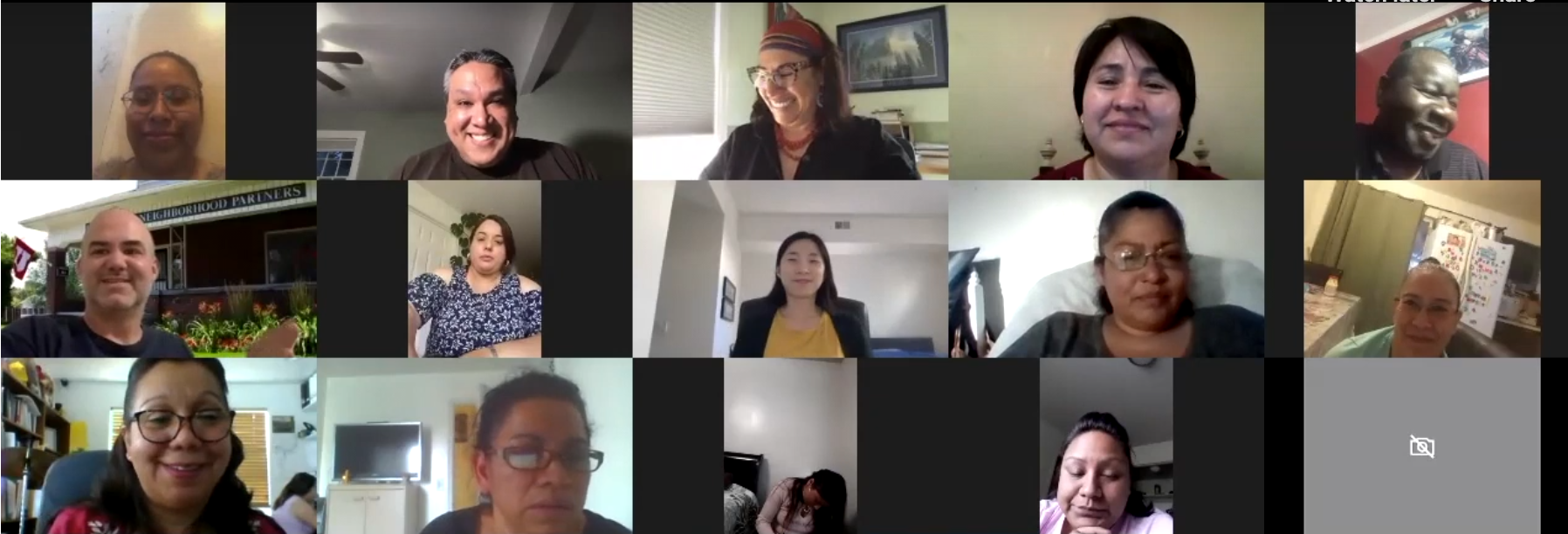
In March 2020, COVID-19 hit the country. It illuminated unprecedented challenges and exposed other pandemics, including racial, economic and environmental issues which were already impacting the Black, Indigenous, and People of Color (BIPOC) communities throughout the U.S. More specifically, the pandemic left many families with various crises — food and home insecurities, loss of work, as well as illness. In spring 2020, when sirens were constantly ringing, we educators were thrown into pandemic teaching mode, which required us to shift our teaching to online. This brought about much confusion and the digital divide became more apparent, as many students were not able to log onto the internet to access and continue their academic learning. This was a very frustrating experience for educators, BIPOC students, and families. Families were all of a sudden expected to become co-teachers, yet many were excluded from online classroom settings.
When we, the Family-School Collaboration Design Team, recognized the increased disconnection between families and educators caused by COVID-19, we considered ways that both groups could share their experiences, hopes, frustrations, and needs. We thought that it would be important to share their voices through recorded zoom videos. This was a powerful approach as families and educators taught us about how COVID-19 was straining their relationships, and they challenged us to be innovative about how to consider school and family engagement during the pandemic and beyond. We published a piece on what we learned in this past October’s Education Week.
As a first generation Purépecha/Chicana scholar who grew up along the San Diego-Tijuana border, the educational inequities I have witnessed during this pandemic have resonated with the experiences my family and I had of being excluded from the educational process. Being a daughter of immigrants who tremendously value education has guided my community-based approach to research. Listening and learning from the voices of families and educators is extremely impactful. We must do better by BIPOC students and families by providing them with access to education, as their input is valuable for us as a community to improve our practices.
The Family-School Collaboration Design Research Project is a team of parents, scholars, and educators working to increase family voice in school decision making. It is also a part of the Family Leadership Design Collaborative.
Content provided by Leticia Alvarez, Associate Professor, University of Utah College of Education for the 2021 issue of UNP’s Community Voices magazine.
